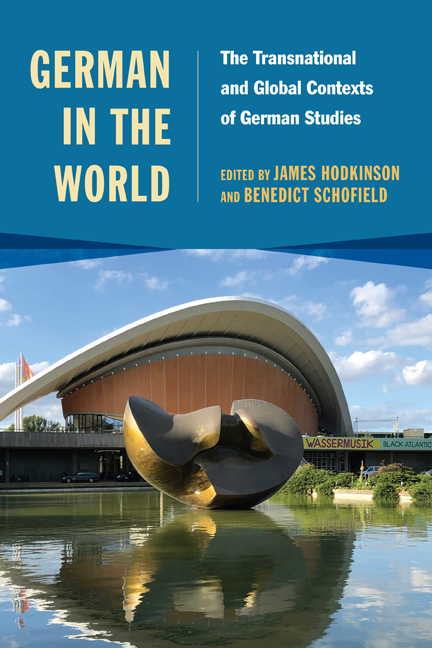4 - Nineteenth-Century German Travelers to Wales: Text, Translation, and the Manipulation of Identity
Published online by Cambridge University Press: 06 October 2020
Summary
THE ROLE OF THE GERMAN intellectual in shaping the thought and culture of nineteenth-century Europe has long been acknowledged, with significant influence evident from Scandinavia to the Mediterranean. The cultural interface between the German-speaking lands and Great Britain was particularly rich, with key thinkers on either side of the North Sea—Goethe and Heine, Scott and Carlyle, to name but a few—engaged in a productive dynamic of mutual influence and often quite competitive comparison. As part of this exchange, in addition to the many literary works and cultural studies produced over the century, a number of writers penned lengthy and detailed travel accounts that brought the world—both near and far—to the reading circles of the emergent “Germany.” Celebrated figures like the Humboldt brothers, Georg Forster, and Ida von Hahn-Hahn produced hugely influential works that served to reshape the German understanding of the world from the periphery of Europe to the Far East, their views absorbed by a readership struggling to place the German-speaking lands in the global context driven by the colonial expansionism of their near European neighbors, with its concomitant mix of orientalist appreciation and exoticized, often threatening, otherness. As well as these household names, there was also a large group of now largely forgotten scholars and travelers whose work was equally crucial in broadening the horizons of readers across the German-speaking lands. Given the keen interest in all matters “English,” it is hardly surprising that the nineteenth century saw a steady stream of German travelers to the British Isles. They came in search of knowledge ranging from an understanding of the London theater scene, to the development of landscape gardens and country houses, to the expanding industrial power of the British Empire. This was the image of Great Britain already known to the German reading public, and each traveler added his or, occasionally, her input to the prevailing appreciative tone—often termed “Anglomania”— of the early-to-mid-century.
What happened when these German travelers found themselves off the beaten track? There was, after all, more to the British Isles than Covent Garden theaters or Edinburgh's New Town.
- Type
- Chapter
- Information
- German in the WorldThe Transnational and Global Contexts of German Studies, pp. 73 - 89Publisher: Boydell & BrewerPrint publication year: 2020



